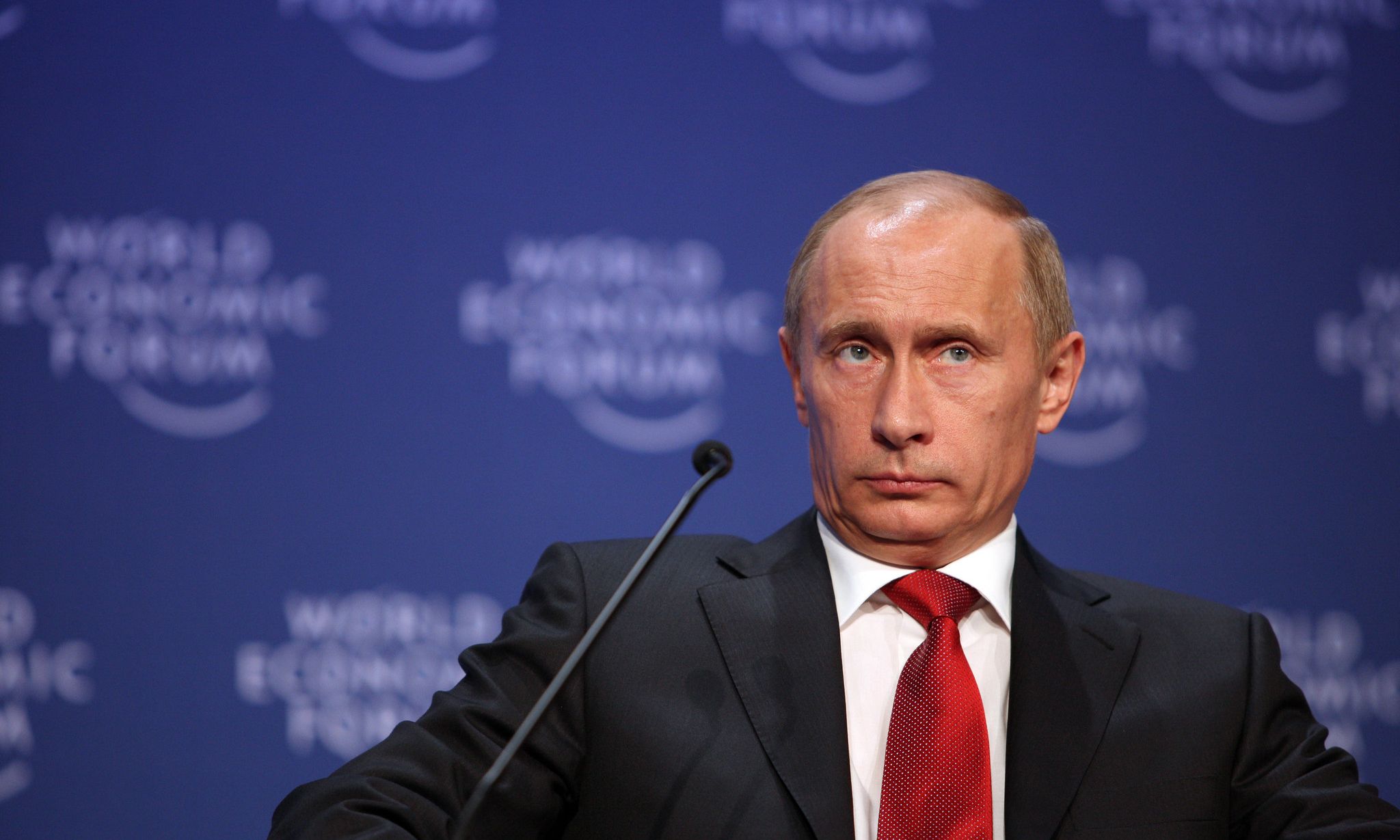Vladimir Putin is set to win a fifth term in office at Russia's presidential elections this weekend Image: © World Economic Forum
Just days before Russia's presidential elections (15-17 March), the country's Federal Security Service (FSB) raided the homes and studios of more than 30 artists in at least seven cities across the country, including Moscow, St Petersburg, Nizhny Novgorod, Yekaterinburg and Perm, according to independent news sites such as AFP, Meduza and Mediazona.
The searches, in which phones and computers were seized, appeared to be connected to the ongoing case against the activist and artist Pyotr Verzilov, which according to some reports might have been escalated to a charge of state treason.. Some of the artists who were searched and questioned this week told Mediazona and other publications that they were immediately asked about Verzilov, even if they did not know him.
Verzilov revealed in an interview last year with the journalist Yury Dud that he had joined Ukraine's armed forces to fight against Russia. He was initially charged with and sentenced in absentia last November to eight-and-a-half years in a penal colony for spreading “fakes” about the Russian military. He had previously posted on social media about the Russian military’s reported killing of civilians in Bucha near Kyiv, shortly after the country's 24 February 2022 invasion of Ukraine.
Verzilov was the publisher of Mediazona, which was founded by Pussy Riot’s Nadya Tolokonnikova and Masha Alekhina in 2014 after their release from prison for a “punk prayer” against Putin at Moscow’s Christ the Savior Cathedral in 2012.
Verilov’s most famous performance in recent years was running in a police uniform onto the field of the Fifa World Cup final attended by Putin in Moscow in 2018. Shortly afterwards he fell seriously ill and was likely poisoned.
Three Pussy Riot members and Verzilov’s mother were searched. Among other artists known to have been targeted by the raids are a who’s-who of at least two generations of those Russian contemporary artists and curators who have not yet left the country. They include: Katrin Nenasheva, a St Petersburg artist who has often addressed the plight of victims of abuse in psychiatric institutions; Artem Filatov of Nizhny Novgorod, who began as a street artist and was named the artist of the year at the 2023 edition of the Cosmoscow art fair; the curator Nailya Allahverdieva, who is the director of the Perm Museum of Contemporary Art, a cultural centre in the Urals; and Anatoly Osmolovsky, a pioneer of late- and post-Soviet performance art who has been featured at the Venice Biennale, left Russia following the raid, according to a report by Deutsche Welle.
Marat Guelman, a contemporary culture promoter who founded the Perm Museum and left Russia a decade ago after being targeted for attack, warned recently, after the arrest of the Siberian artist Vasily Slonov, that the authorities would soon be coming for all contemporary artists. Law enforcement agencies in Russia had until recently been targeting anti-war artists and LGBTQ artists such as Sasha Skochilenko in St Petersburg.
Guelman told Mediazona on Wednesday that he knows of four artists “of the older generation” who were searched in the raids and have decided to wait it out by keeping silent. “What can you do, this is the psychology,” he told the publication.
Amid this week's raids against artists, Leonid Volkov, a top aide to Aleksei Navalny (the Russian opposition leader who died in an Arctic penal colony last month), was attacked with a hammer in Vilnius, Lithuania. Volkov, with Navalny's widow Yulia Navalnaya, is continuing the late politician and activist's call to Russians to come to the polls en masse on Sunday for an action dubbed “Noon Against Putin”. Commentators have suggested the raids on artists of the last several days are intended to discourage them (and others) from amplifying the action with art.

